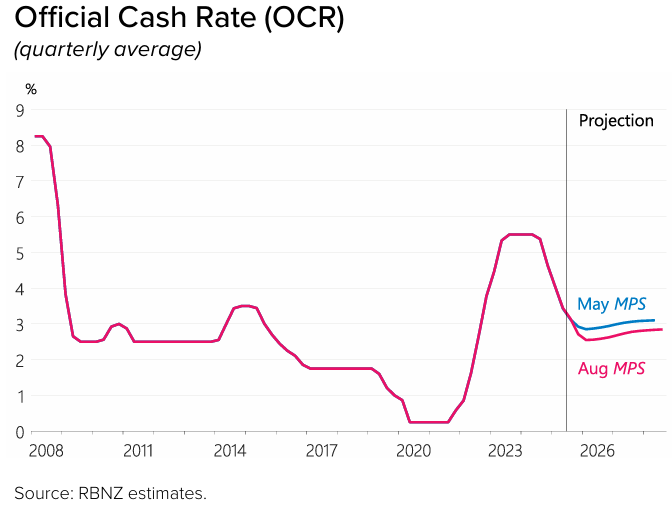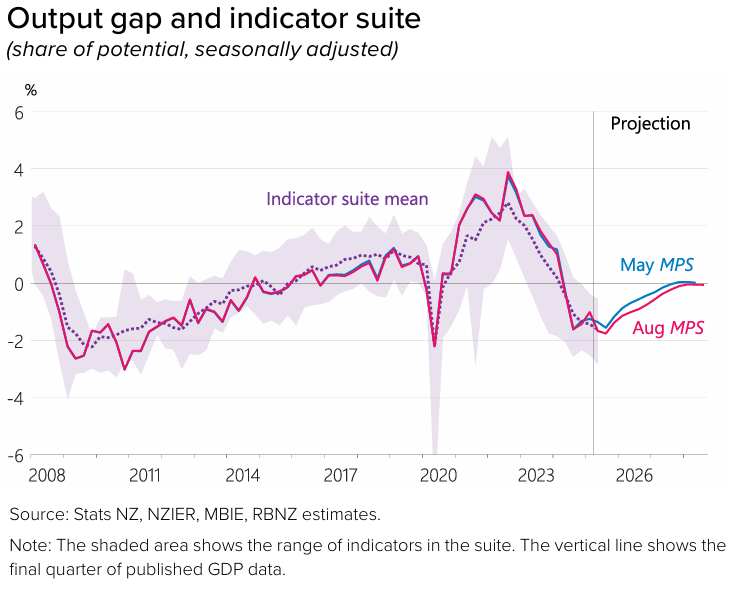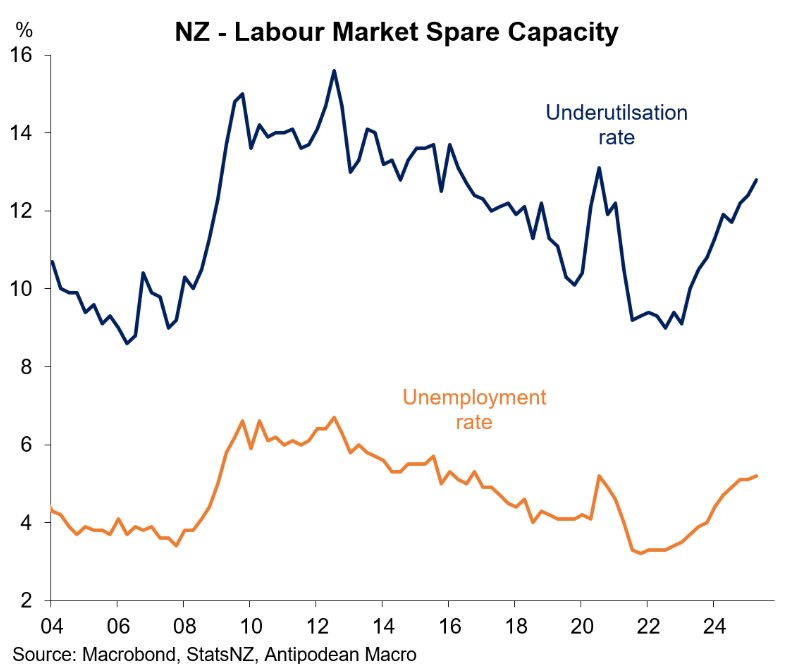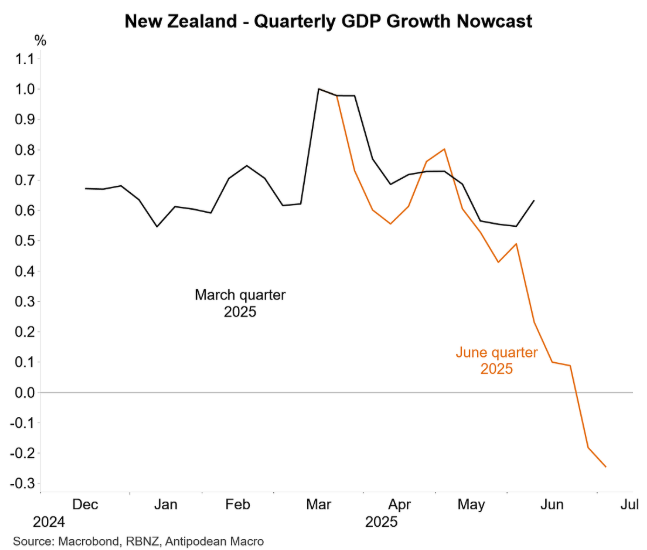The Reserve Bank of New Zealand cut the official cash rate (OCR) by 25bp to 3.0%, a decision widely expected by economists and markets. This meant that the OCR has fallen by 2.5% from its 5.5% peak in mid-2024.

The above OCR track published by the Reserve Bank is projected to end the year at 2.71% (2.92% in May MPS). This suggests further 50bp of OCR cuts by year-end (likely 25bp per meeting) and a 2.5% OCR.
The tone of the Reserve Bank’s policy assessment was more dovish than expected, with a 50bp cut considered.
The Reserve Bank noted that New Zealand’s “economic recovery stalled in the second quarter”, with “spending by households and businesses… constrained by global economic policy uncertainty, falling employment, higher prices for some essentials, and declining house prices”.
The statement noted “significant spare capacity in the New Zealand economy”. It estimates that the “output gap is about -1.8% of potential GDP in the September 2025 quarter”.

“Unemployment has increased, as have measures of labour underutilisation, and firms are reporting that it is relatively easy to find labour. Firms are also reporting low levels of capacity utilisation”.

The Reserve Bank’s GDP nowcasting model, Kiwi‑GDP, also suggests GDP may have declined in Q2 2025 by 0.3%, as illustrated below by Justin Fabo from Antipodean Macro.

Major bank ASB also now expects a further 50bp of cuts before year-end (25bp cuts in October and November) and a 2.5% OCR as the Reserve Bank “frontloads policy stimulus”.
“Monetary policy is the right tool for the right time”, ASB noted. “Treasury’s recent analysis highlighted the need to restore fiscal buffers given their erosion since the GFC and future fiscal needs”.
“This leaves few policy levers outside of pushing the OCR further below neutral levels”.

